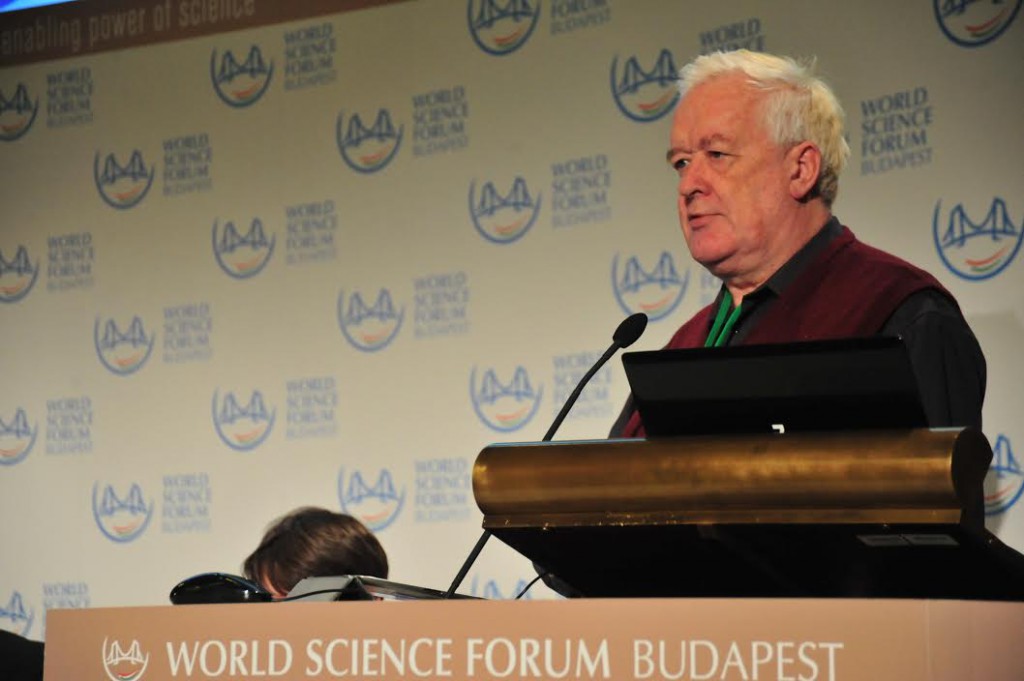
Professor Hans von Storch is a highly distinguished ocean and climate scientist. He has written 20 books and sits on numerous climate advisory boards. He usually writes for the climate blog: Die Klimazwiebel
Recently, a journalist asked me in passing – which was the best COP so far, which the worst?
Honestly, I have not been a good observer of these meetings. All I know there were many and the next is #21. There was Copenhagen, sometimes labelled Hopenhagen by enthusiasts. It was COP15 and the year was 2009. Copenhagen, the last exit, it was called, the last chance for instituting a binding policy which would make “us” limit global anthropogenic (human-caused) climate change to a stable 2 deg in 2100.
The 2 degree goal is an old one. It was discussed by the now mostly forgotten German climate researcher Wilfrid Bach in an interview with Spiegel in 1988. The idea was that the agreement must take the form of a legally binding treaty; that the sum of these promised reductions of emissions must lead to the 2 degree reduction in the long term, and that in the short term definite plans needed to be set up for the change of trend before 2020.
None of this came to pass in Copenhagen. What the partners could agree on was that the 2 degree goal should continue as a reference for the rest of the century. Apart from that, the international community could not agree on anything definite and left home empty handed. That was it; the famous meeting of the leaders of the western nations, including Obama, came to an end. Somewhat surprisingly, after this Obama was seen in the room negotiating with other leaders, the BRIC (Brazil, Russia, India, China) countries. They had arrived at the conclusion of Copenhagen and a meeting with the then new US President was seen as a recognition in the important part these countries could play in climate change deals.
Activists were devastated; the last exit has not been used, and six years after Copenhagen we continue on our high-speed train into the abyss. Gradually, the process of tackling climate change resumed. After COP20 in Lima we could read again the first optimistic assessment about possible future developments. The rhetoric seemed to have changed; it was no longer the drama of the last exit, but more the coalition of the willing, a concept which George W Bush had also applied to the climate issue, arguing that there needed to be cooperation among the big players (emitters). Now, in Paris, COP21, we are still on this track, and I sense an optimism based on the voluntary list of all-too-small “Intended National Determined Contributions.”
Something has changed between Copenhagen, Lima and now Paris. I suggest that the first important change happened in Copenhagen, namely the destroying of the overly naïve and “world-leader” attitude of the western countries, which seemingly had hoped that the old colonial division of labor would do it. We (the west) had sinned, indeed, and we have to rectify that. But any such a rectification has to consider our superiority in technology, importance of issues and even diplomacy. We lead, you follow. But Obama had moved into the other room. The spell of western superiority was broken, and that is why I answered the original question of the “best” COP eventually with: Copenhagen.
Now, we seem to be on a reasonable path; not a really good one; certainly not a path of perfect justice. We still have a very high chance of not meeting the goal. But we are underway in reducing emissions. It’s very likely not enough for what the econometric calculation indicates are needed to stay below the 2 degrees warming. However, we are improving. While the previous COPs were confronted with the choices “all or nothing” – and chose mostly “nothing” – we can now say – what? About 47.2%? What a wonderful progress. Let “us” achieve what is achievable, while not forgetting that maybe other issues of significance may emerge. I expect that the numbers will improve over time.